On 5 May 2021, the Information Society Research Institute of the University of Public Service delivered an online workshop to discuss the manuscript ‘The regulation of social media platforms in Hungary’. This paper provides a comprehensive overview of the regulation of social media platforms such as Facebook in Hungary and highlights dilemmas that may arise from the modernisation—or the lack thereof—of the platform. The paper also addresses issues related to the limitation of free speech, censorship, and fake news.
The opening remarks by András Koltay were followed by a lively exchange of views.
In the context of ‘state action’, a doctrine mentioned in the paper, Associate Professor Bernát Török indicated that state action as a typical US doctrine is not applicable in European legal systems, which recognise the horizontal effect of fundamental rights concerning certain matters. In a discussion on scaremongering, senior research fellow Zsolt Ződi emphasised the value of further investigating the relationship between fake news and the Covid-19 pandemic in light of changes to the rules on disseminating harmful information resulting from the health crisis.
Senior researcher Pál Vadász observed that the level of maturity of software such as algorithmic content filtering applications does not allow adequate filtering of all harmful online content. He also emphasised the need for further study of the issue of deepfakes, the use of which will likely move well beyond that of false information.
Focusing on antitrust regulations, research fellow András Pünkösty highlighted the significance of consumer protection and competition rules and referred to the practices of the German Bundeskartellamt. He suggested that in addition to media regulation, consumer protection and competition rules can provide users with efficient protection in certain situations.
Research Professor Attila Menyhárd noted that consumer protection and competition rules should not be considered silver bullets for all problems, as political content and the removal of accounts from social media platforms are matters outside the scope of consumer protection.
Research fellow Péter Lábody approached the issue of regulating social media platforms from a copyright perspective. Referring to his paper, he specified that the new copyright directive also has an impact on media pluralism and strengthens the position of authors.
Finally, senior research fellow Árpád Rab highlighted a trend toward views that challenge the role of government regulation. He maintained that this trend appears to be gaining momentum and raises significant questions.

